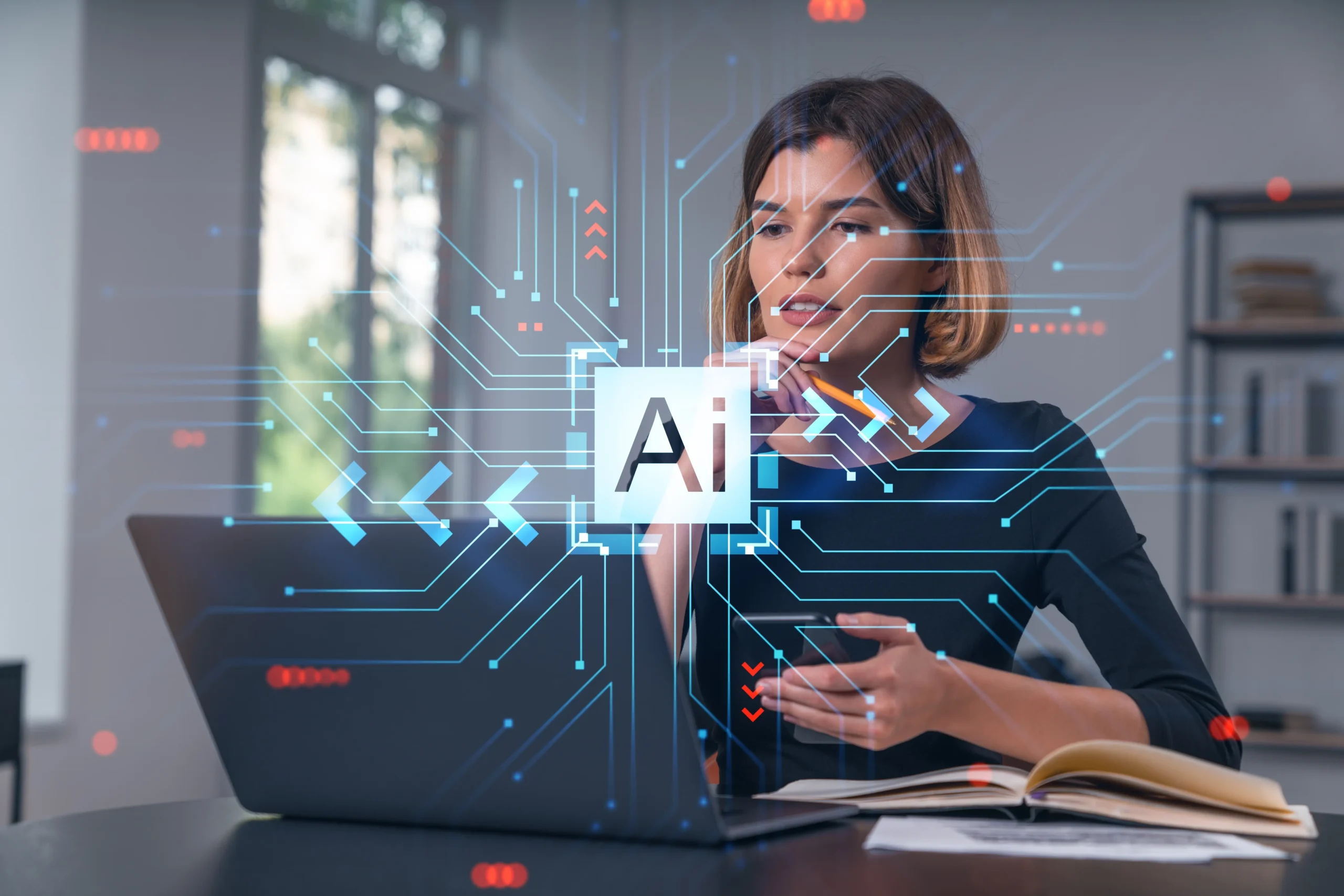Artificial intelligence is no longer a “futuristic speculation” but a tangible reality that permeates every aspect of our modern lives. From the search engines we use every day to the autonomous vehicles that promise to revolutionize transportation, artificial intelligence is transforming the way we interact with technology and the world around us. In this era of rapid technological advances, it is imperative to explore and understand both recent developments and future advances in the field of artificial intelligence. From the exciting advances in deep learning and natural language processing to the new frontiers being opened up by quantum computing and artificial creativity, this topic is both fascinating and relevant to the future of humanity. Let us explore its current applications, its future implications and the ethical and social challenges posed by its continued development.
Recent developments in artificial intelligence
Deep Learning
Deep learning has been one of the main drivers of progress in artificial intelligence in recent years. Through deep neural networks, artificial intelligence systems have made significant advances in tasks such as image recognition, natural language processing and autonomous driving.
For example, in the field of image recognition, deep learning algorithms have reached levels of accuracy that rival human capability. This has translated into practical applications in fields as diverse as medicine, agriculture and security.
Advances in natural language processing (NLP)
Natural language processing (NLP) has seen amazing advances in recent years, driven in large part by language models such as GPT and BERT. These models have demonstrated an impressive semantic understanding of human language and have significantly improved the ability of machines to generate coherent and relevant text.
The application of these advances in NLP can be seen in a variety of areas, from virtual assistants and automatic translators to social network sentiment analysis systems and automated content generation.
Explanatory artificial intelligence
As artificial intelligence systems become more ubiquitous in our daily lives, transparency and explainability have become increasingly important areas of research. The ability to understand and explain the decisions made by artificial intelligence algorithms is crucial to ensure trust and widespread adoption of this technology.
In response to this need, researchers have been working on approaches to make artificial intelligence models more transparent and explainable. This includes the development of techniques to visualize and understand the decision making process of machine learning models.

Applications in medicine and health
In the field of medicine and healthcare, artificial intelligence is proving to be a catalyst for innovation and improved medical care. From AI-assisted diagnosis to treatment personalization and medical record management, the applications of artificial intelligence in healthcare are vast and promising.
For example, artificial intelligence algorithms can analyze large medical data sets to identify patterns and trends that humans might miss. This can lead to more accurate diagnoses and more effective treatments for a variety of diseases and medical conditions.
Future advances in Artificial Intelligence
Pervasive artificial intelligence
One of the most exciting areas of research in the field of artificial intelligence is the development of more general and flexible AI systems. These systems would have the ability to perform a wide range of cognitive tasks more autonomously, making them more adaptable and useful in a variety of environments and situations.
Ethics and responsibility
As artificial intelligence continues to advance, significant ethical and social challenges also arise. Addressing these issues is critical to ensure that artificial intelligence is used in an ethical and responsible manner. This includes considerations of fairness and impartiality in AI algorithms, as well as privacy and data security.
Quantum artificial intelligence
Quantum computing has the potential to radically transform the field of artificial intelligence by enabling data processing on an unprecedented scale. AI algorithms could run much faster on quantum hardware, which could open up new possibilities for solving complex computational problems more efficiently.
Creative Artificial Intelligence
Artificial intelligence also has the potential to be a powerful tool for human creativity. As AI algorithms continue to improve, they could be used to generate art, music, design and other forms of creative expression. This could change the way we interact with culture and human creativity in the future.
Key future benefits expected with the advancement of artificial intelligence:
Improved operational efficiency:
-
- Artificial intelligence has the potential to optimize processes and tasks in a wide range of industries, from manufacturing to healthcare, increasing efficiency and reducing operating costs.
- By analyzing data in real time and automating repetitive tasks, companies can improve productivity and work quality.
Advances in medical care:
-
- Artificial intelligence can revolutionize medical care by enabling more accurate diagnoses and personalized treatments.
- Machine learning algorithms can analyze large medical datasets to identify patterns and trends that humans might miss, improving early disease detection and treatment efficacy.
Autonomous transport:
-
- Artificial intelligence is driving the development of autonomous vehicles that promise to reduce traffic accidents and improve transportation efficiency.
- Autonomous driving systems use advanced algorithms to interpret sensory data and make real-time decisions, which could lead to safer driving and reduced traffic congestion.
Personalization of the customer experience:
-
- Companies can use artificial intelligence to collect and analyze data on customer preferences and behaviors, enabling them to deliver more personalized and relevant experiences.
- By using recommendation algorithms and machine learning systems, companies can anticipate customer needs and offer products and services tailored to their individual interests.
Discovery of new materials and drugs:
-
- Artificial intelligence is accelerating the process of discovering new materials and drugs by enabling rapid analysis of large amounts of data.
- Machine learning algorithms can predict the properties of new chemical compounds and help identify promising candidates for further development.
Artificial intelligence has come a long way from its humble beginnings to become a pervasive and transformative force in modern society. Throughout this blog, we have explored recent developments and future advances in this exciting field, from deep learning algorithms to potential applications of quantum computing. However, as we celebrate the achievements, we must also reflect on the ethical, social and regulatory challenges that accompany this technological progress.

One of the most pressing challenges is ethics in the development and application of artificial intelligence. As these technologies become more deeply integrated into our lives, it is crucial to ensure that they are used responsibly and equitably. This includes addressing concerns about data privacy, algorithmic bias and the impact on employment. It is critical that developers and policy makers work together to establish sound ethical frameworks to guide the development and use of artificial intelligence.
In addition, we must consider the socioeconomic impact of artificial intelligence on the workforce and economic inequality. While artificial intelligence has the potential to increase efficiency and improve our lives in many ways, it also raises the possibility of displacing workers and exacerbating income disparities. It is crucial to address these concerns through policies that encourage retraining and job training, as well as equitable redistribution of the economic benefits generated by artificial intelligence.
We must take into account the potential of artificial intelligence to influence our understanding of humanity and creativity. As algorithms become more sophisticated in the generation of art, music and literature, fascinating questions arise about the nature of creativity and human identity. While artificial intelligence can broaden our creative horizons and offer new forms of expression, it also raises questions about the originality and meaning behind machine-generated works.
Artificial intelligence represents one of the most powerful and promising forces of our time. However, to harness its full potential and mitigate its risks, it is critical to address the ethical, social and economic challenges that arise along the way. In doing so, we can ensure that artificial intelligence continues to be a force for good in society, driving innovation, equity and human progress.



